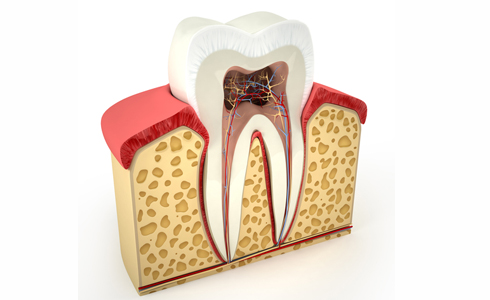Crowning Glory

James Poulter explains how teeth make the body's hardest substance and what can happen when the process goes wrong
The Biologist Vol 61(6) p16-19
The smell of a dentist's waiting room and the sound of the drill strikes fear into the heart of many. However, unlike most forms of medicine, which provide treatments when we are unwell, regular visits to the dentist ensure our teeth remain healthy.
One key reason for dental check-ups is the inability of the protective surface of our teeth, the enamel, to repair itself once damaged. Regular check-ups enable a dentist to look for early signs of damage. If any cracks or holes are identified, they can be filled to prevent further deterioration of the tooth's surface.
If a tooth's enamel layer is breached and left untreated, there is a high risk that the mouth's environment could start to attack the underlying tissues, leading to infection and either discomfort or intense pain. The process of enamel formation, called amelogenesis, is therefore critical to ensure our teeth remain protected and strong for as long as possible.
Want to continue reading this article?
Click to login.


